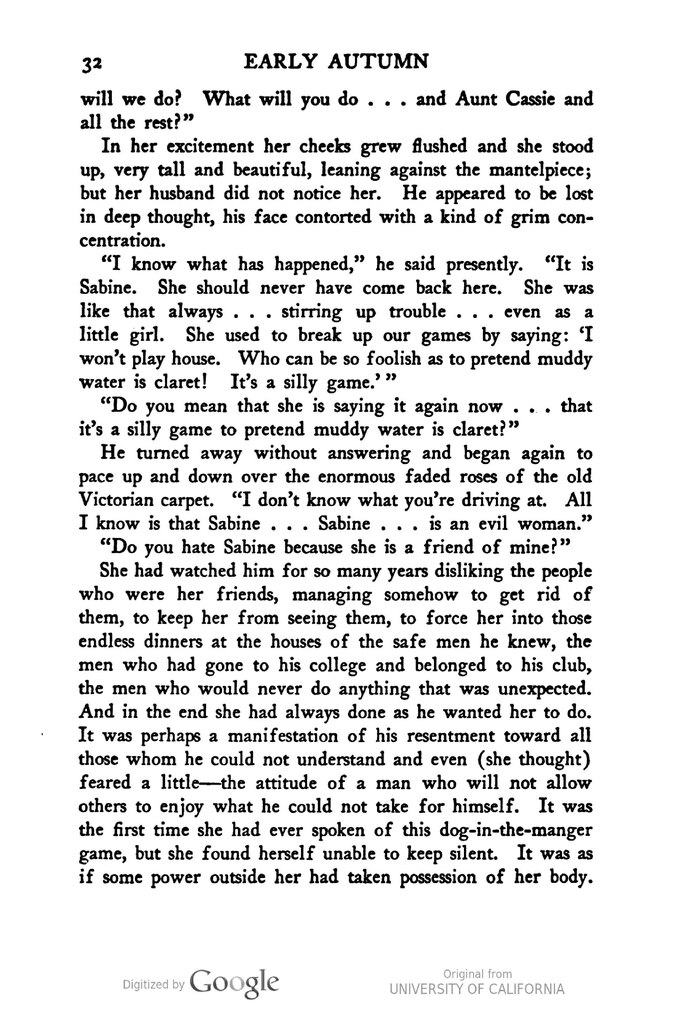will we do? What will you do . . . and Aunt Cassie and all the rest?"
In her excitement her cheeks grew flushed and she stood up, very tall and beautiful, leaning against the mantelpiece; but her husband did not notice her. He appeared to be lost in deep thought, his face contorted with a kind of grim concentration.
"I know what has happened," he said presently. "It is Sabine. She should never have come back here. She was like that always . . . stirring up trouble . . . even as a little girl. She used to break up our games by saying: 'I won't play house. Who can be so foolish as to pretend muddy water is claret! It's a silly game.'"
"Do you mean that she is saying it again now . . . that it's a silly game to pretend muddy water is claret?"
He turned away without answering and began again to pace up and down over the enormous faded roses of the old Victorian carpet. "I don't know what you're driving at. All I know is that Sabine . . . Sabine . . . is an evil woman."
"Do you hate Sabine because she is a friend of mine?"
She had watched him for so many years disliking the people who were her friends, managing somehow to get rid of them, to keep her from seeing them, to force her into those endless dinners at the houses of the safe men he knew, the men who had gone to his college and belonged to his club, the men who would never do anything that was unexpected. And in the end she had always done as he wanted her to do. It was perhaps a manifestation of his resentment toward all those whom he could not understand and even (she thought) feared a little—the attitude of a man who will not allow others to enjoy what he could not take for himself. It was the first time she had ever spoken of this dog-in-the-manger game, but she found herself unable to keep silent. It was as if some power outside her had taken possession of her body.
